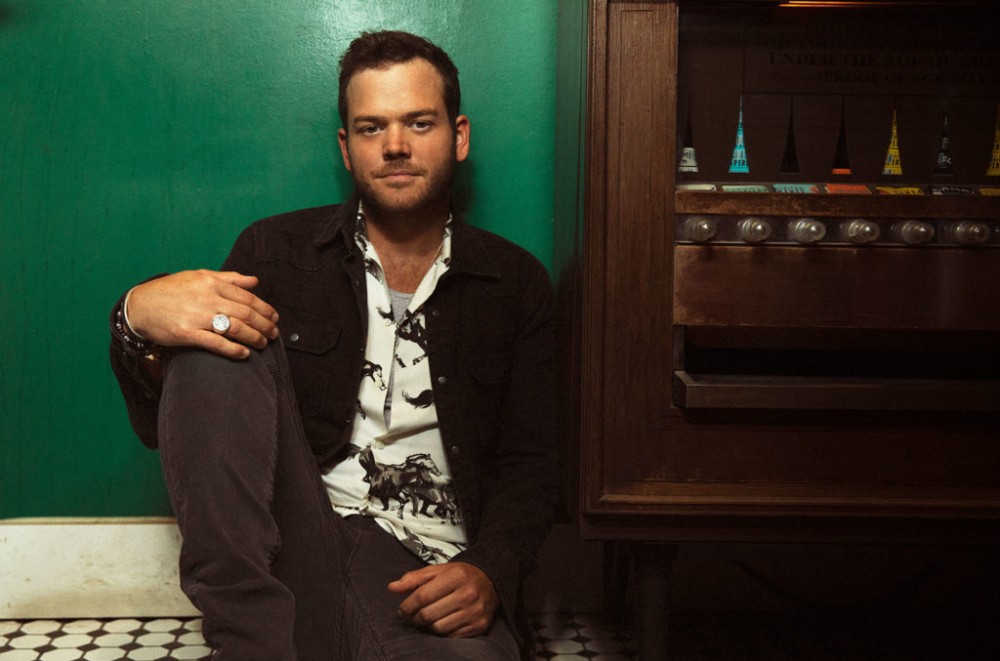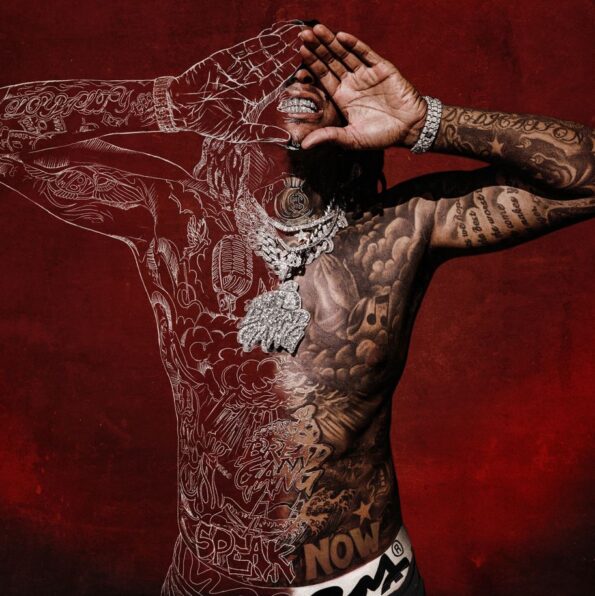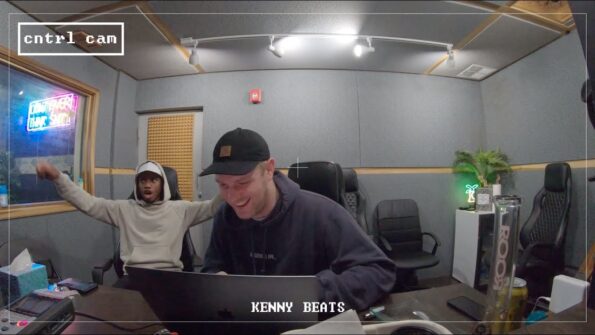“I can say that it’s over.”
The opening line of Johnny McGuire’s debut single, “I Can’t Even,” is a blunt introduction to the song’s story line: an overview of a man struggling with the dissolution of a meaningful romantic relationship.
The timing unintentionally fits McGuire on a professional level, too. It’s his first solo single since the breakup of Walker McGuire, a duo that released three singles from 2017 to 2019. Lead singer Jordan Walker found success during that run as a cowriter of Luke Combs’ “When It Rains It Pours,” and he decided in February 2019 to focus on writing and stay off the road as he builds a young family.
“I’ve had a lot of people on socials and in the comments section say, ‘Is this song] about you guys?’ ” McGuire explains. “Any emotions that I was going through at the time, maybe that drew me to the song subconsciously. But as far as like maliciousness and feeling any grudge on the past, there wasn’t any there.”
As the harmony singer for an act that never peaked higher than No. 35 on Country Airplay, McGuire was an unknown commodity to most of the marketplace. But BBR executive vp Jon Loba left the door open for a solo deal and gave McGuire and producer Mickey Jack Cones (Dustin Lynch, Joe Nichols) a green light to find and record four songs.
“Johnny’s vocals are so unique,” says Cones. “They have a texture to them and a raspiness, but it also has a bite to it.”
They rounded up three songs fairly easily. The fourth, “I Can’t Even,” came from Big Loud singer-songwriter HARDY, who had just released his own first single, “Rednecker.” Tree Vibez creative director/tour manager Adam Romaine played it for McGuire on the way to a pickup basketball game, and McGuire related it to his sister and an ex-girlfriend; both had used that “I can’t even” phrase on him more than once.
“I didn’t really get it at first,” he says. “Then I realized it wasn’t a term of endearment, and I was kind of the butt of the joke.”
McGuire wanted “I Can’t Even,” and he was happily surprised when HARDY let him have it. HARDY, after all, had written “Growin’ Up,” the song that Walker McGuire had abandoned when the duo broke up, and McGuire thought HARDY could have cut “I Can’t Even” for his own career.
“I don’t know if it’s necessarily my sound,” says HARDY. “I had a huge pile of songs.”
“I Can’t Even” was already nearly two years old by then. HARDY wrote it with Mark Holman (“Simple”) and James McNair (“See You Try”) on Florida Georgia Line’s Tree Vibez bus outside the FirstOntario Centre in Hamilton, Ontario, on May 3, 2017. Holman — who has produced or played on records by James Durbin, The Struts and Foreigner — played some melancholy chords that formed a backbone for the day.
“Holman comes from the rock world, so a lot of his tracks and stuff that he creates are very guitar-driven,” observes McNair. “Sonically, it stands out, in that sense.”
No one remembers who had the “I Can’t Even” title, but they figured they could use it to relate a familiar plot about a broken heart in a small town. That opening salvo, “I can say that it’s over,” is just the first in a row of dominoes.
“You’re saying, like, ‘I can say this,’ ‘I can do this,’ ‘I can do that,’ ” notes HARDY. “That’s kind of the trick, too. What you can’t do is in the chorus.”
The most interesting of those can-do items is held until the second verse: “I can dive into Hemingway.”
“Some people said, ‘Hemingway; is that like a gun? Like a Remington or something?’ ” observes McGuire. “You’ve got this saying, ‘I can’t even,’ which, people make fun of it, like it’s a Valley girl from the ’90s, but then it has substance, dropping Hemingway.”
The most important drop might be the descending melody that opens the chorus. Typically, writers try to provide some sort of lift in the chorus, so the downward trajectory of those first notes creates an unusual sonic tension and announces the chorus’ arrival at the same time.
“It’s such a unique melody that it just kind of had its own thing, so that the dynamic between the verse and the chorus, it still felt like it lifted,” says Holman.
“The chorus really pops like it does because it’s a super-conversational verse with not many crazy moves going on melodically,” adds McNair. “Then that chorus comes in, and it’s super-melodic. And the phrasing is so different that I think that’s what kind of made that song win.”
Holman produced the demo that day with HARDY singing lead across a keyboard-driven chorus.
“Normally, I would play heavy guitars or rhythm guitars in the chorus,” Holman says. “But The Chainsmokers were really happening right then, so I put these, like, Chainy synths in that would kind of swell.”
The song drew some interest around town — the writers collectively believe Morgan Wallen, Luke Bryan and Jason Aldean all flirted with “I Can’t Even” — but when it slid through the system, McGuire was able to pick it up for his first solo session at Nashville’s Omni Sound on April 11, 2019.
Drummer Lester Estelle played spacious rhythms, punching up key moments in McGuire’s vocal. Bassist Jimmie Lee Sloas found a few spots for melodic bursts, and Troy Lancaster fashioned the beginnings of a Southern-rock guitar solo that Cones finished in a later overdub session. Lancaster also applied a synth effect to his guitar to create a sound in the intro that has a tinge of Snoop Dogg “Gin and Juice” tones.
Underneath it all is an occasional sense that a phone is vibrating, almost as if the ex is calling to get back together.
“I use a program called Stylus, into which] you can program a drum kind of thing, but it’s more eccentric loops and subfrequencies and a lot of similar things,” says Cones. “It does vibrate because it’s a pulsing thing. It’s probably in there six, maybe eight times, because I just threw it in there in spots.”
Amid the slight hip-hop and Southern rock influences, McGuire’s edgy tone and the dark chorus combine to create a sinewy 3 Doors Down/Puddle of Mudd effect, though Mike Johnson’s steel guitar and McGuire’s Midwestern-bred gravel keep it from sliding too far astray.
“We did countrify it up a little bit, as much as we could,” says McGuire. “But I think the selling point for us was the voice. My voice on it makes it sound enough country that it worked.”
Wheelhouse released it to country radio on Feb. 10 PlayMPE, giving McGuire an angry vehicle to introduce himself to the world. It’s an appropriate attitude for the song, but don’t think for a second that it applies to the breakup of his duo.
“The whole Walker McGuire experience is really college to what I’m doing,” he suggests. “It got me these relationships with radio, and it taught me how to entertain people and how to be onstage. In all honesty, every single step I took — including Walker McGuire — led me to where I am now.”



